
Sporti Floating Fins Review: The Best Long Fins for Swim Training
The Sporti Floating Fins are a budget-friendly long blade fin perfect for competitive and recreational swimming. Here’s our in-the-pool review of how they perform in the water.
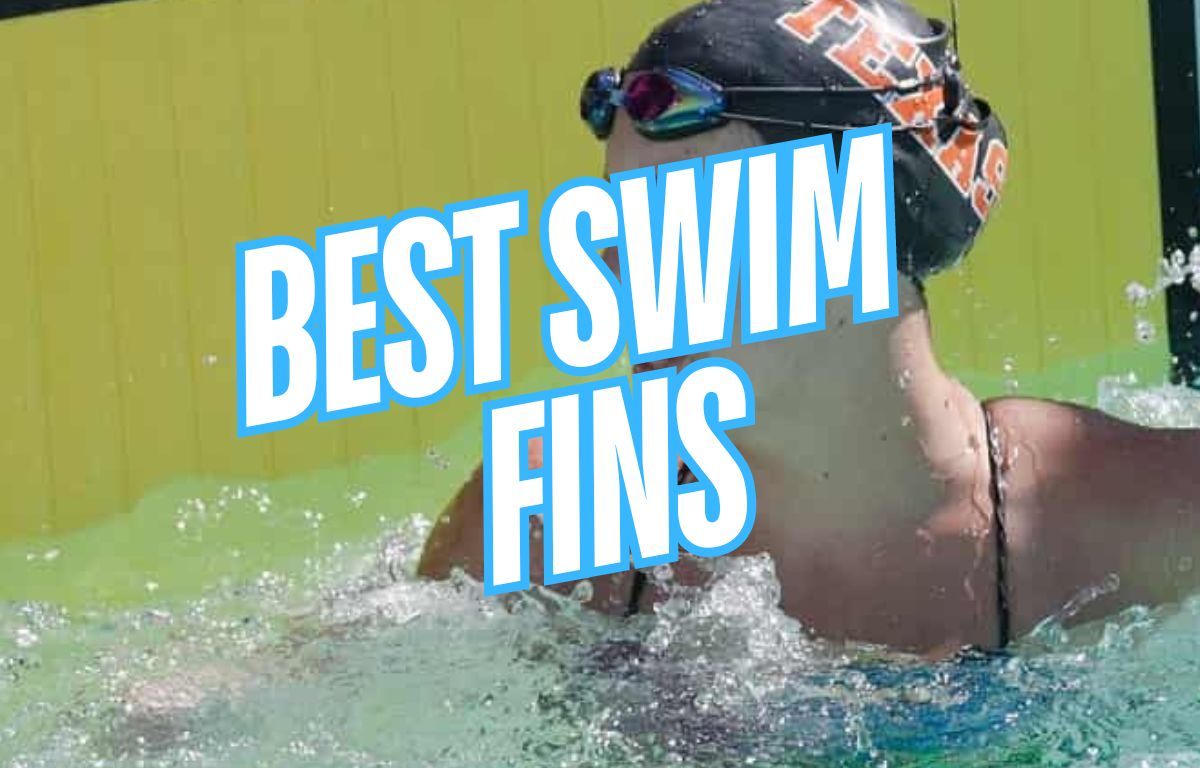
Looking to get a new set of training fins? Here are reviews of the best swimming fins for competitive and lap swimmers.
Swim fins are one of my favorite tools for improved swimming at the pool.
The right pair of fins help improve your technique, teach you better body position, and strengthen your legs and kick.
But with all of the different swim fins on the market, it can be hard to figure out which ones are right for you, your feet, and your goals in the water.
Based on our extensive experience with swim fins, we’ve compiled the best options for training and swimming laps.
Let’s dive right in.
The top swim fins for every kind of swimmer and swim training includes:
Next, we will examine each swim fin in greater depth, compare them, list the pros and cons, and by the end, you will have a crystal-clear idea of which fin is perfect for you and your swimming.
⭐ Best Overall fins for competitive swimmers
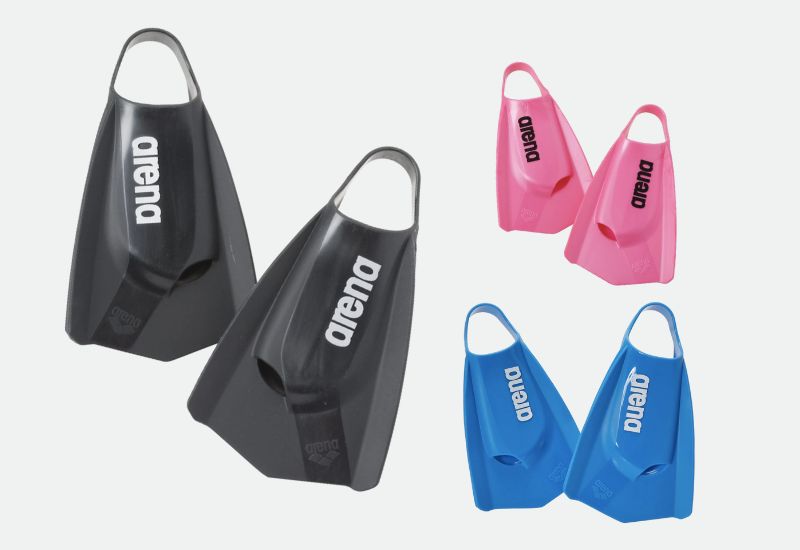
I’m a big fan of Arena products, in particular, their jammers and these fins. They rank at the top because (1) I use and abuse them and (2) they are durable as heck. They get daily thrashings and haven’t aged a day.
Another big side benefit is that for heavy-fin users, these bad boys don’t cause blisters.
One of the main problems with fins are when they cut into your skin with use and force, meaning you have to pair them with socks or booties.
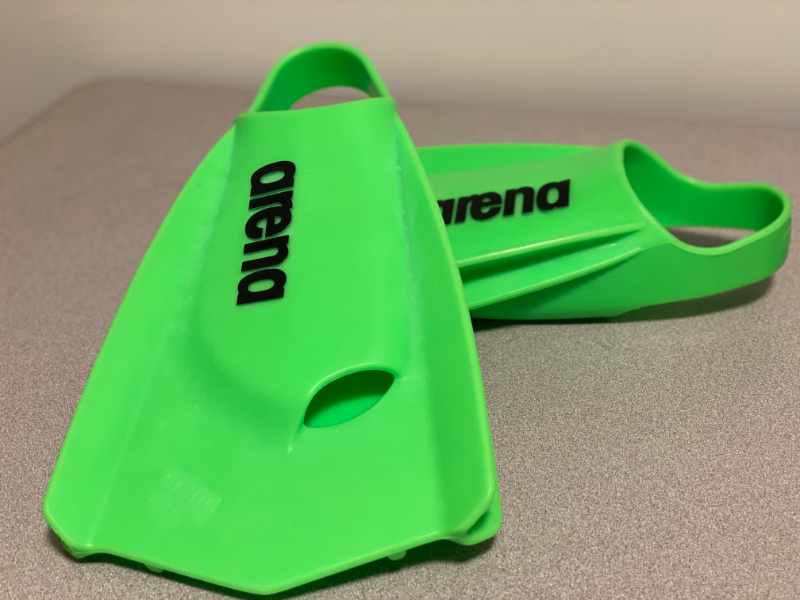
Because these fins are made with silicone (compared to rubber), they have soft edges that don’t cut into your foot. The short blade is perfect for retaining a high kick tempo.
In the below video you see Brazil’s Bruno Fratus finding a unique way to train with his Powerfin Pro fins, incorporating vertical kicking, sprinting and a medicine ball for a throttling power and speed routine:
The Arena Powerfins are available in a variety of colors, from your standard black, to bright neon green and pink.
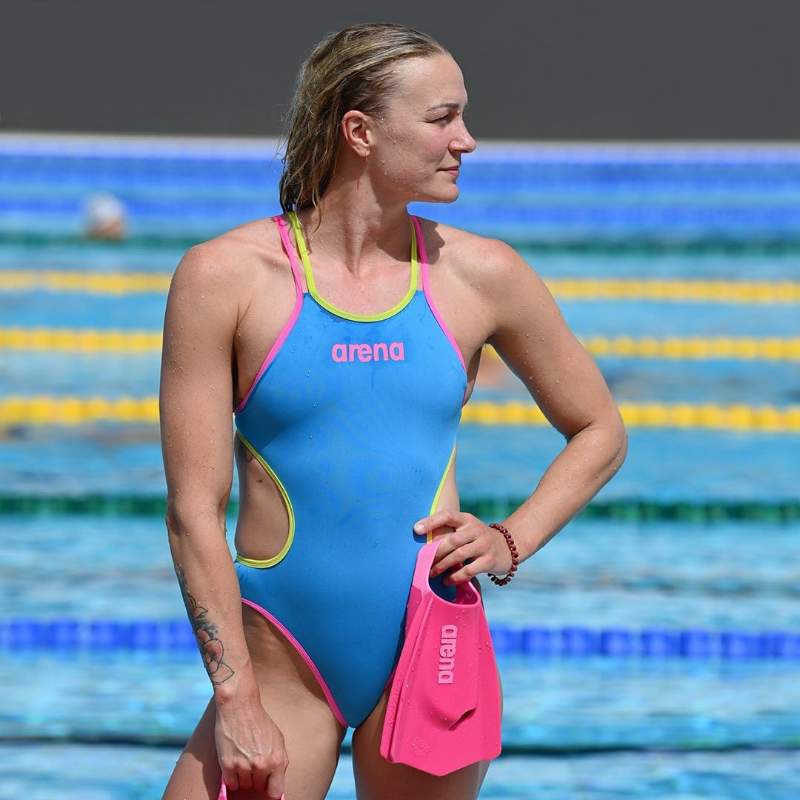
The Arena Powerfin PRO fins are inexpensive, last forever, and have soft silicone construction that won’t crack or wilt as you churn up and down the pool at full-speed.
| ✅ PROS | ❌ CONS |
| Best overall training swim fins | No sizes for really large feet |
| Silicone construction | |
| Blade design for maximum speed | |
| Open heel for increased range of motion |
⭐ Best fins for experienced competitive swimmers
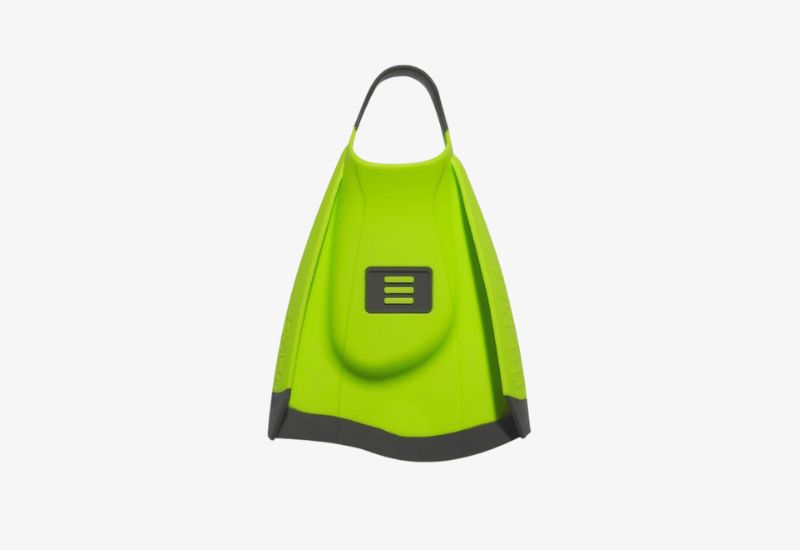
The DMC Elite Max Swim Fins have found a regular spot in my rotation in my swim bag as they are exceptionally comfortable, have the perfect amount of flex, and the softest silicone I’ve ever seen on training fins.
These DMC swim fins are short-blade swim fins made with soft silicone that is proprietary to DMC. They have a “V” rail along the side that helps make your feet more hydrodynamic, giving the fin a sense of flexible rigidity and additional control when kicking.
In terms of resiliency, the DMC Elite Max Swimming Fins are among the most durable I’ve ever used. Which is odd as they are also the softest set of fins I’ve ever used.
They are made with a silicone-like polymer that is soft as butter and extraordinarily flexible…and yet, after years of wear, still function as new.
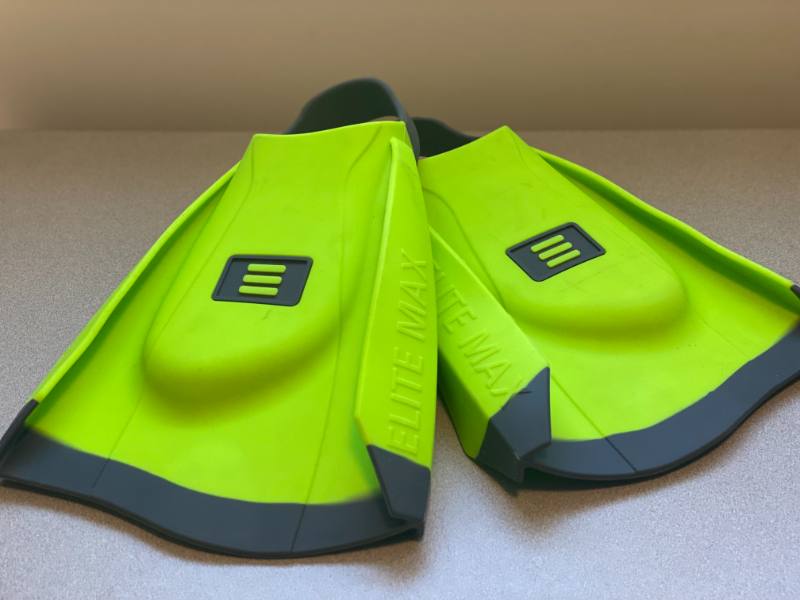
The durability and comfort are impossible to overstate.
Unlike rubberized swim fins, and even some other silicone swim fins, my DMCs have never shown a hint of cracking, and I have worn them for extended (and by extended, I am talking like 7,000m swim practices) in total comfort.
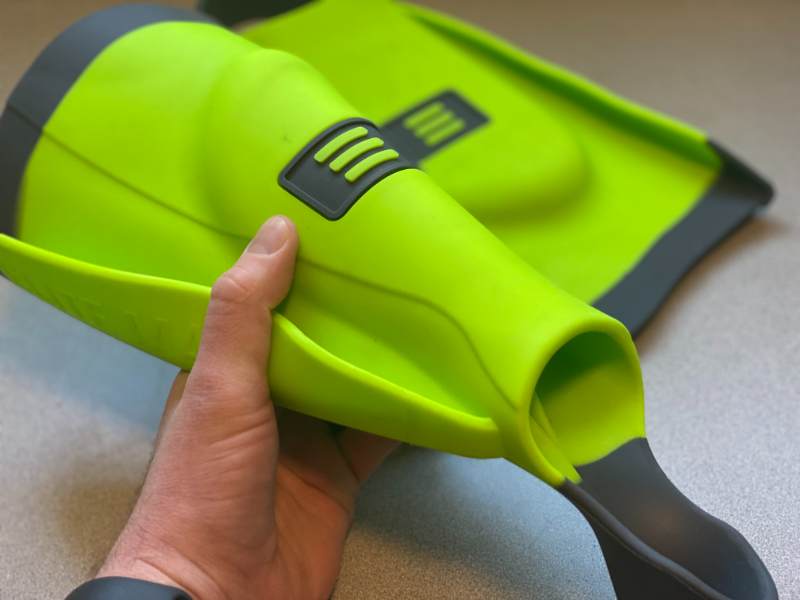
Available in a variety of sizes and colors, the DMC Elite Max fins are the best high-performance training fins out there for competitive and recreational lap swimmers looking for durable and comfortable fins for swimming.
So why aren’t they number one on my list?
Price and availability.
They are the most expensive swim fins on this list at around $90, and they are frequently out-of-stock on Amazon. But if you do get your hands on a set, well, that will be the last set of fins you ever purchase.
| ✅ PROS | ❌ CONS |
| Silicone construction | Expensive |
| Rails on the edge for more stability | Frequently unavailable on Amazon |
| Hilariously durable | |
| Made for blistering speed (without getting blisters…) |
⭐ Best swim fins for kids
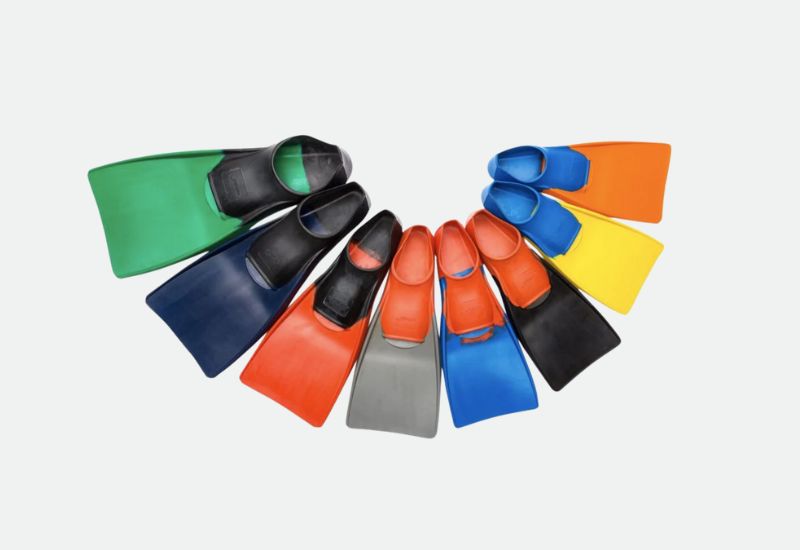
Long blade fins definitely have a place in your swimming bag, especially for younger and beginner swimmers. The added length is ideal for building leg endurance and teaching good kicking fundamentals.
The FINIS Floating Youth Swimming Fins are also my top recommendation for the best swim fins for kids as they float, are comfortable, and are relatively inexpensive.
With a long history in the sport, an excellent and durable design, and lots of colors and sizes to choose from, these FINIS fins won’t sink between sets and laps, sit comfortably on the feet, and have a closed heel for extra support on the foot.
Made of rubber, these long-blade training fins are relatively low-cost (Swim Outlet carries them for around $25—check here for current deals) and will have your swimmer zooming across the pool in style and comfort.
| ✅ PROS | ❌ CONS |
| Buoyant design to help swimmers achieve better body position | Rubber may cause blistering during extended use |
| Longer fins are great for building strength | |
| Closed-heel design to stay on feet | |
| Tons of color options to choose from | |
| Budget-friendly pricing |
⭐ Best fins for open water swimming
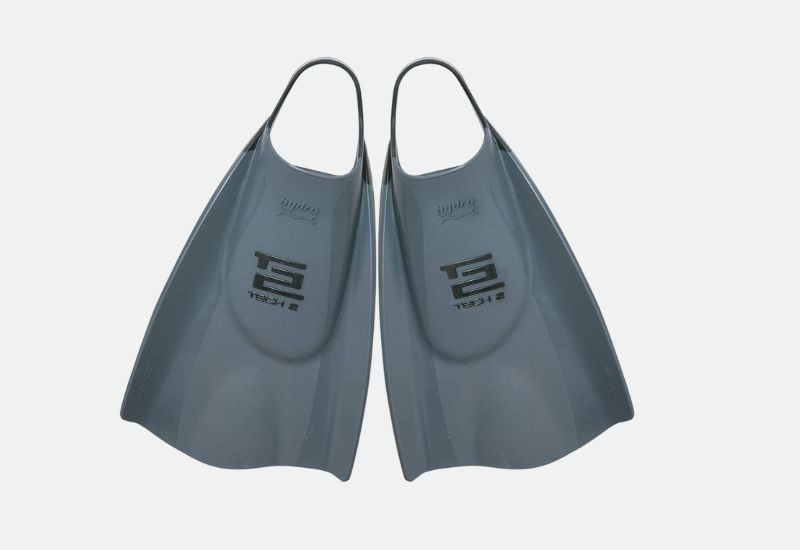
Lastly, we got these bad boys. The Hydro-Tech 2 swim fin seems to have been designed for ocean sports, but it’s got a metric ton of application in the pool.
There are a few reasons I have been using these swim fins over the past few months…
First, they look gangster. We like to look good while we are swimming like our hair is on fire in the pool, and these fins look great and come in a variety of different color combinations. (The black and orange are my favs.)
Second, they are durable as heck. I have been using them almost daily, for long bouts of straight swimming as well as some full blast swimming, and they haven’t aged a minute. There’s not a chance these things are going to split unless I swim into Edward Scissorhands.
Third, like the Arena Powerfin), and the Edge fins, the Hydro-Tech 2 are made of soft, buttery silicone that won’t blister and chafe the skin on your feet when swimming, whether that’s on open water, in the waves, or crushing 25s fast with fins and swim paddles on.
Additionally, the Hydro-Tech fins are very suitable for open water as the gripped silicone on the bottom makes it easier to not slip when scrambling across wet rocks or even wet pool decks.
The Hydro Tech 2 fins are pricier than most swim fins on the pool deck, but the soft silicone will last forever (I’ve had a set since 2014 that have zero cracks from high-mileage use).
| ✅ PROS | ❌ CONS |
| Ideal for swimmers who get blisters from rubber fins | A bit pricey |
| Open-heel design | |
| Extremely durable | |
| Best option for pool and open water swimmers |
⭐ Best old-school swim fins
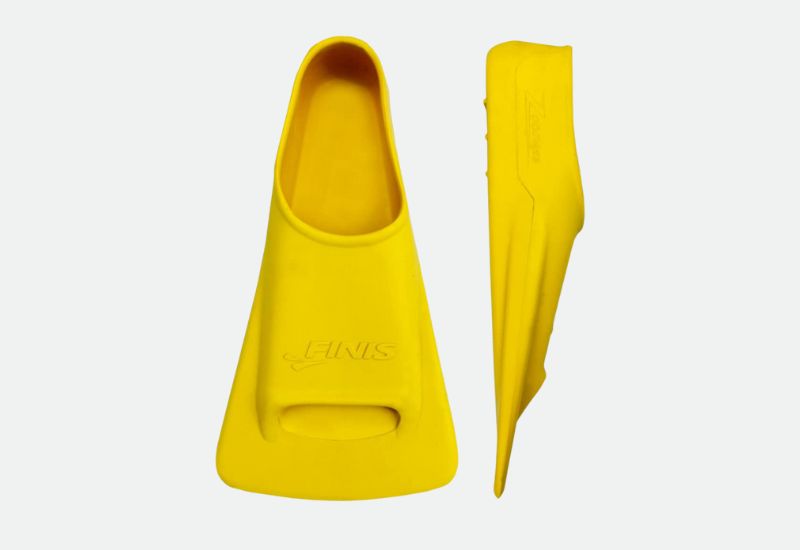
The original short-blade fin for swimmers is the FINIS Zoomer. Until these fins came along during my age group days we would buy long fins meant for snorkeling and cut off most of the blade.
For veteran competitive swimmers, these things can be nostalgic for all the wrong reasons—the red Zoomers were so stiff that they would leave your ankles and feet sore and blistered.
Fortunately, Zoomers (we are talking about the Gold Zoomers now) have gotten a little softer and more flexible over the years, which is good news for our feet.
Additionally, because they are the shortest-blade swim fins on the market, they come closest to your natural kicking motion.
In other words, the training adaptations (strength building, kick speed) are going to be excellent with Zoomers.
Zoomers come with a closed-heel design, and the fin is built with enough flexion that it doesn’t feel like the top of your foot is being ripped apart when you kick with max power and tempo.
Finally, Zoomers are made with natural rubber. The rubber is quite thick, which can be great for helping strengthen the ankles, but rubber is more prone to cracking and ripping compared to silicone.
| ✅ PROS | ❌ CONS |
| Shortest blade swim fins | Closed-heel design |
| Stiff design promotes ankle flexibility | Made with thick rubber |
| Most closely resembles natural kicking tempo | |
| Inexpensive |
⭐ Best mid-length swim training fins
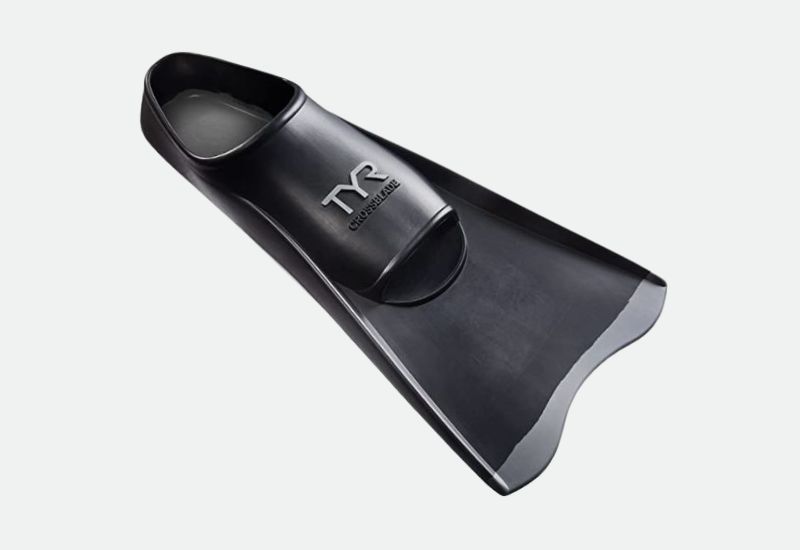
Not quite a long fin, but also not a short fin, the TYR CrossBlade 2.0 Swim Fins give you the best of both worlds when it comes to fins…
You get the large surface area of longer fins, increasing resistance and building more leg and kicking strength.
And you get the short(ish) blade, which means you can kick fast and with high tempo, more closely matching your natural kicking and swimming technique.
The Crossblade 2.0 swim training fins represent a significant improvement on the original, which I went through several pairs of between 2014 and 2016. While they were comfortable, and had a flexible blade for fast kicking, the CrossBlade 1.0 was prone to rips and caused toe and heel blisters during longer swim workouts.
The Crossblade 2.0 has a thicker foot pocket, which significantly increases the lifespan of the fins and makes them more comfortable during wear.
The Crossblades are also one of the few fins that have sizes for larger swimmers (the XXL fits men up to size 15 and women 14.5+).
They are relatively budget-friendly (about half the price as the DMC’s and Arena Powerfin Pros, for example), and are available in a variety of colors.
| ✅ PROS | ❌ CONS |
| Best mid-length training swim fin | Rubber construction can cause blisters with extended use |
| Flexible blade | |
| Upgraded foot pocket for fewer tears | |
| Budget-friendly | |
| Larger size options |
⭐ Best monofin for swim training
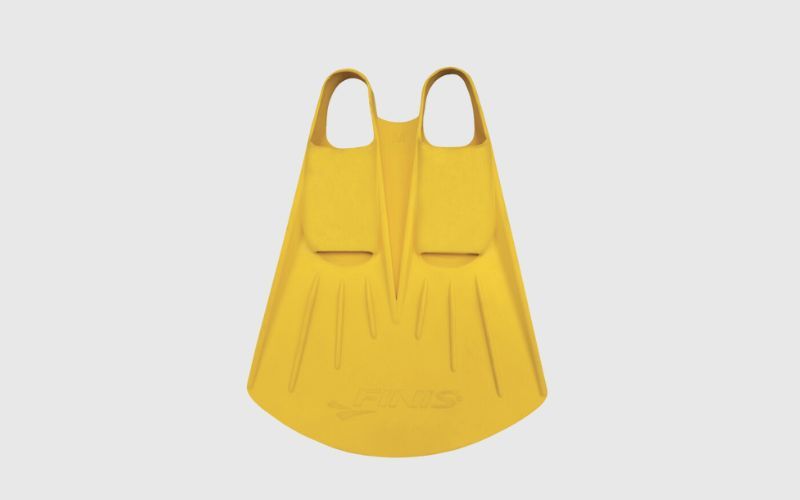
Monofins are a specialized type of swim fin that is one, large fin made with natural rubber. The best Monofin for swimmers is the FINIS Foil, designed by legendary swim coach Bob Gillett.
The Monofin is a swim fin designed specifically to improve the underwater dolphin kick by encouraging a fuller kick. The large blade size strengthens the core, forces a butter undulation when kicking, and helps swimmers kick with consistent rhythm.
The FINIS Foil has an open heel design (unlike other monofins that are made of stiff plastic) to encourage greater range of motion when kicking. The FINIS Foil comes in four different sizes and has chutes by the toes to allow water (and your toes) to flow through the fins.
For swimmers serious about leveling up their dolphin kick, the FINIS Foil is a must-have swim fin.
| ✅ PROS | ❌ CONS |
| Best monofin for swim training | Takes up a lot of space in your mesh bag |
| Develops a stronger underwater dolphin kick | |
| Soft rubber design | |
| Open heel design for increased ankle range of motion |
The material, size, and shape of the swimming fin you choose make a big difference in the way your swim fins help you improve in the water.
Here are the main things to be on the lookout for when shopping for your next pair of training fins.
Training fins come in a variety of lengths and shapes, but the two main categories are short blade training fins and long blade swim fins.
Longer fins mean your legs have to work harder (with all of the added surface area on the fins, there is more water to “push”) and your legs will tire sooner.
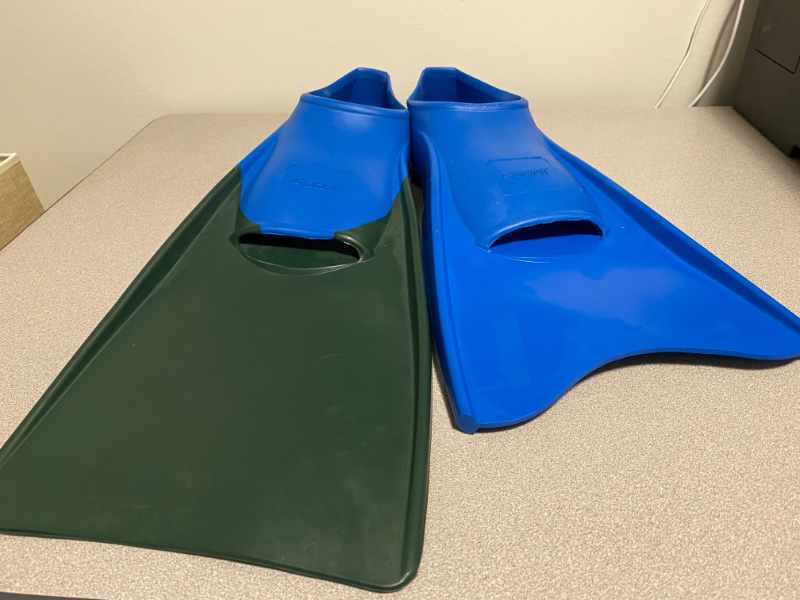
Short blade fins mimic our natural kicking tempo and technique, making short fins a better training tool for swimmers looking to get faster in the water.
That said, long fins do have a place for lap swimmers, particularly younger and beginner swimmers who are just getting their footing in the water.
Swim training fins come with either a closed heel (which has rubber wrap around the back of the foot) or an open heel, which keeps your feet locked in place solely with a strap that goes around the back of your feet.
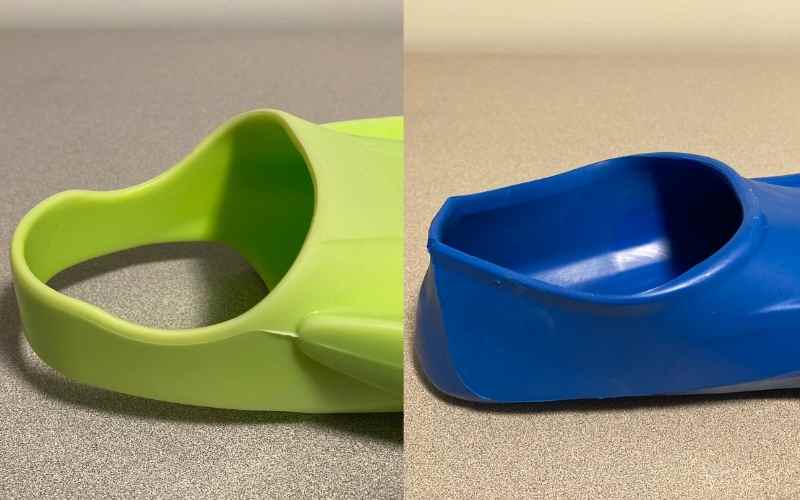
An open-heeled fin tends to be more comfortable and can provide a better range of motion, making it a better option for most swimmers. That said, beginners and even some intermediate swimmers will favor the closed-heel as it creates a more snug and secure fit on the feet.
Blade stiffness is something else to consider.
The more rigid the blade, the harder it is to move the blade through the water. If you’ve ever tried to swim fast with snorkeling fins you know what I mean.
Stiffer fin blades also require a higher degree of ankle mobility as they place more pressure on the foot. In my own personal experience, stiffer fins also lead to blistering and cramping during heavy use.
Softer blades are better suited for lap swimmers as the natural flexion is more akin to how our feet move through the water.
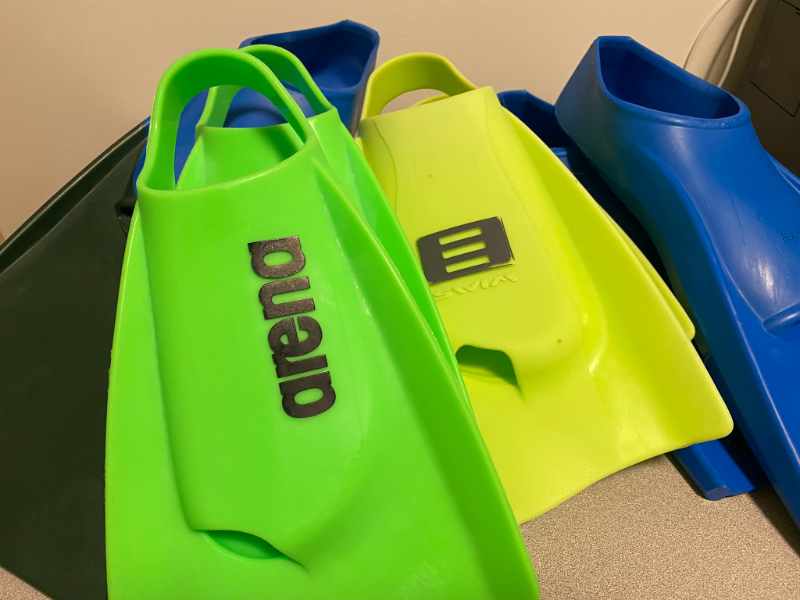
When I was an age group swimmer in the 1990s, fins came in rubber and rubber only. This meant lots and lots of blisters on the top of my feet over the years.
Thankfully, in recent years swim brands have been moving to silicone for the main material in training fins.
Silicone doesn’t rub on the skin in the same way as rubber, which chafes and blisters over time. Silicone also doesn’t crack and warp over time.
The main drawback with silicone is that the fins are a little heavier and they cost more in price.
For long blade fins, the material is almost exclusively rubber. Short blade fins are made in both silicone and rubber.
Swim fins have a wide variety of functions in the water, from helping you develop leg strength to improving ankle flexibility.
Here are some of my favorite benefits of strapping on a pair of fins at the pool, and how you can make the most of this swimming tool.
Using fins is a lot of fun. There it is. I’ll admit it. After all, who doesn’t like going faster than their normal swimming speed?
For a few fleeting moments (or at least until our legs die) we are swimming at elite speeds. As the old adage goes, fast swimming makes for happy swimmers.
Fins are a great way to inject some speed and enjoyment into your swim practice.
One of the key habits I picked up over the years is using fins for most of my warm-up. As a bigger fella, it takes me a while to get my shoulders warm and loose in the water (especially on those cold winter morning swims).
Using fins means I am logging fewer yards with excess stress on the shoulders.
Swimmer’s shoulder is a real concern for swimmers, both recreational and competitive, and using fins for “off” sets like warm-ups and even parts of your main set can reduce excess fatigue on the shoulders.
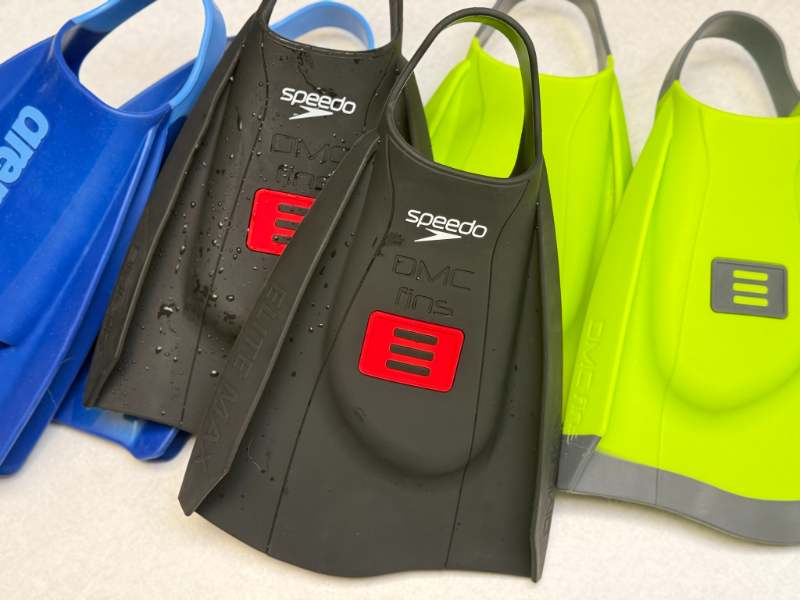
Technique is everything in the water. Fins naturally raise your hips in the water, which improves your body position and makes you more efficient.
Additionally, the added speed that fins provide shows your body how to move through the water at speed, building the neural pathways for future improvement and speed.
Fins have a great way of over-exaggerating the resistance you experience in the water and can point you in the direction of more efficiency and speed.
One of the underappreciated benefits of training fins is that they help you master the timing required to turn at high speeds in the water.
After a successful taper, and strapping on our favorite tech suit, swimmers feel like they have been shot out of a cannon, and those walls and finishes arrive much faster than anticipated.
Doing these technical aspects of your races with fins on teaches you to master the timing to nail your turns and touches at high speed so that you don’t get caught off-guard on race day.
Kicking fast in the pool requires good ankle flexibility. There’s no getting around this.
Fast kickers have a narrow profile in the water because they “catch” more water with the top of their feet. There are lots of ways for swimmers to improve ankle mobility out of the water, but fins are a tool for doing so while in the pool.
The added surface area of the fin blade creates a gentle stretch on the ankles, improving the range of motion.
Swim fins come in a few different shapes, materials, and functions.
There are short blade swim fins (the most popular amongst experienced competitive swimmers), long blade swim fins (good for novice swimmers and kids), and snorkel fins, which tend to be extremely long and not useful for swimming laps.
Shorter fins are best for swimmers looking for speed in the water. Shorter fins also give you a better opportunity to mimic kick tempo closely.
Longer fins are ideal for younger swimmers trying to improve their body position and strengthen their kick and legs.
Swim fins have long been one of my favorite tools in the pool.
Fins increase your speed and power in the water, sending you into overspeed mode.
Doing this periodically helps teach your body move more efficiently in the water.
Fins are also a great way to increase ankle flexibility, improve kicking technique, strengthen your legs, and break up the monotony of regular swimming during your swim sessions.
To recap our top choice for the best swim fins:
The Arena Powerfins Pro continues to rule the pool.
Available in a variety of colors, these 100% silicone fins are made for speed in the water.
Choose the best swimming fins that match your foot size, type of training, and budget, and kick your way closer to your goals in the water.
After countless meters and yards swimming up and down the pool over the years, and purchasing and churning through just about every swim fin on the pool deck, I’ve put together a guide to the best swim fins for swimmers.
This guide includes everything you need to know about choosing the right swim fins for you and is based on our decades of experience testing and evaluating swim fins, both as national-level swimmers and now as more recreational speed swimmers.
Combine that with our hands-on (or rather, feet-on) testing process, and we’ve put together the most complete guide to the top swim fins you’ll find on the interwebs.
The Monofin: Your Weapon for a Killer Dolphin Kick. Want to level up your underwaters? Learn how a Monofin is one of the most potent weapons for taking your fly kick to the next level.

Olivier Poirier-Leroy Olivier Poirier-Leroy is the founder of YourSwimLog.com. He is an author, former national level swimmer, two-time Olympic Trials qualifier, and swim coach.
✅ Free shipping on Orders over $49
✅ Price Match Guarantee
✅ Best selection of gear for training and competition
✅ Fast and Easy Returns

“This is the best book I have ever seen concerning mental training.” — Ray Benecki, Head Coach, The FISH Swim Team


The Sporti Floating Fins are a budget-friendly long blade fin perfect for competitive and recreational swimming. Here’s our in-the-pool review of how they perform in the water.
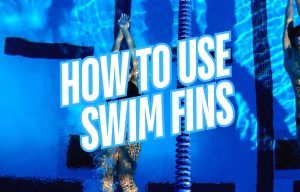
Swim fins are one of swimmers’ weapons for faster swimming. Here’s how to use them smartly for improving technique, power, and speed.

In the market for a new swim bag? The Speedo Teamster 2.0 carries on the tradition of the original along with some snazzy new features in this review.
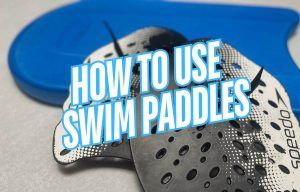
Learn how to properly use swim paddles for speed, strength and technique in the water while avoiding common paddle mistakes. Swim on! Swim paddles are one of the most popular tools that swimmers use to go faster, get stronger, and build better and more efficient technique. They are also a
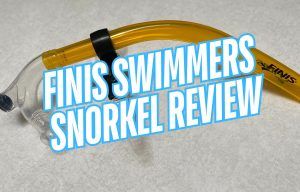
Looking to add the FINIS Swimmers Snorkel to your training stack but aren’t sure? Here’s how it performs in the water and compares to other swim snorkels.

The DMC Max Elite Swim Fins are a high-performance swim training fin for competitive swimmers. Here’s my hands-on review of these comfortable and lightning-fast fins.